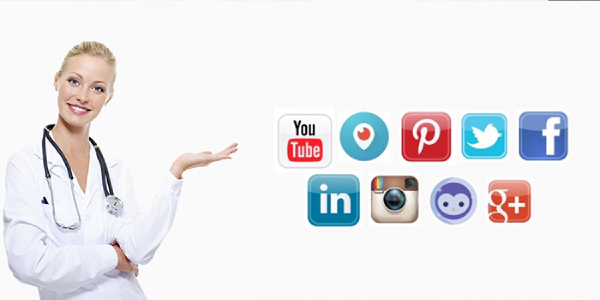Today’s social media networks are no longer about idle chatting with other medical professionals or patients. There are exciting new ways to tap into the power of social media, which will improve your overall reach and contribute to the success of your practice. Social media can provide additional value to you and your medical practice in ways you may not have considered. Patients will appreciate social media access for the available dialogue with physicians who can provide access to health-related educational material. According to reports from large consulting organizations released in 2012[i], social media can now contribute to business objectives beyond basic marketing. The reports examined social media as a valuable business communication tool, a customer service strategy and as a way to promote improved healthcare. If you own a small family medical practice, it is not necessary to hire a social media team and provide constant monitoring.
It’s often as simple as finding communities of people that you or your practice’s physician can monitor and learn from. Using information gathered from these resources will go a long way towards further enhancing your medical practice. How can physicians utilize social media to their advantage? We have identified the following 5 types of opportunities:
1. Identify needed services. Social media will help you establish insight into what patients need to do to improve their health. Social media feedback provides a means of finding out what services interest patients. For example, you could post an idea for an event, like a blood screening to be held in the community, and ask people what other events they would like to see available.
2. 60% of patients claim they trust information posted by physicians on social media. From a social media perspective, doctors are becoming aware that posting more healthcare information will benefit their community. Many trends develop on Twitter that could indicate a healthcare need in a community. Social media could also provide a new way of tracking population health. Tracking health trends is becoming increasingly popular and may eventually identify hot spots for disease outbreaks.
More Info About : Do You Need A Mesothelioma Lawyer
3. Gaining feedback on medication and therapy: Collecting feedback on medicines and therapy can be one of the most valuable assets offered to a medical practice via social media, as well as one of the easiest to facilitate. When hundreds of patients begin talking about the side effects of a drug, doctors and nurses have immediate feedback at their fingertips.By monitoring a “buzz” or trend surrounding a certain drug, you will gain real-time insight into how patients are reacting to it. You may learn of a treatment you have yet to try, or an alternative therapy you discover by monitoring patient interactions on social media. Patient communities can be a great source of information for you and other physicians.
4. Comparing to improve quality: Social media makes it simple for your practice to observe how it compares with your competition in terms of services offered and patient satisfaction. For example, observing a competing practice’s social media site could provide a family medical practice a “fly-on-the-wall” perspective.And by monitoring the social media activities of competitors, practices still developing their online presence can gain insight on how to fine tune their efforts.
5. Improve your customer service. How your practice, clinic or hospital responds to negative comments or complaints may be more effective than positive patient feedback. Complaints made on social media boards can often be addressed or even remedied on-the-spot, because it provides an outlet for doctor-patient dialogue. Practices can respond in public with an offer to correct negative situations so that others can see positive action being taken in real time. Potential customers will also realize that customer service is taken very seriously. This allows a medical practice an opportunity to know about situations immediately, so they can be remedied – not exacerbated by an upset patient. In fact, organizations that are not responsive to patient criticisms through social media are already paying the price. Responding to online feedback should become a priority for every practice. This article was originally published in a Experics by PwC Health Research Institute and Global Institute for Emerging Healthcare Practices, and here is the copy provided for non-commercial research and educational.






